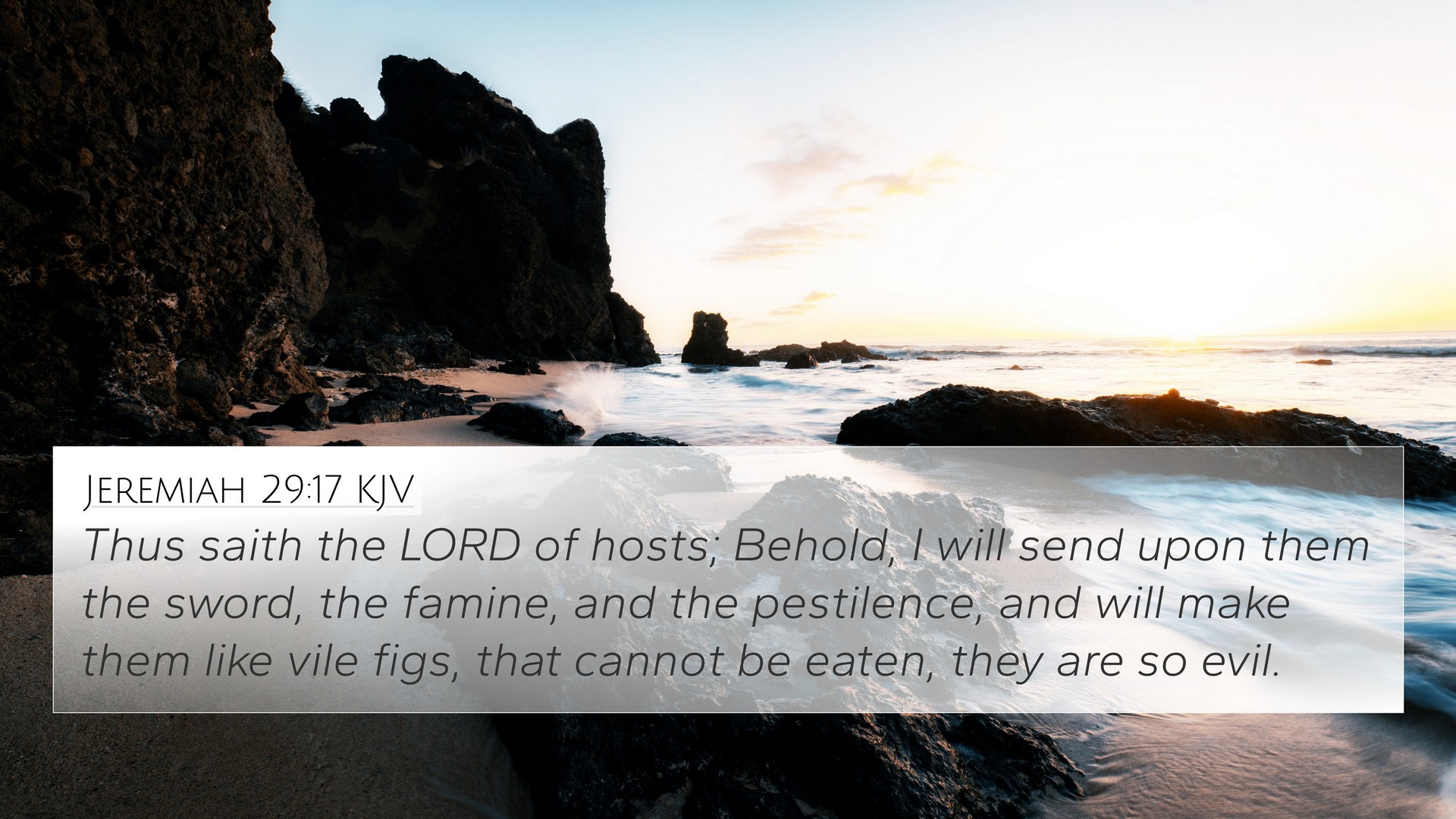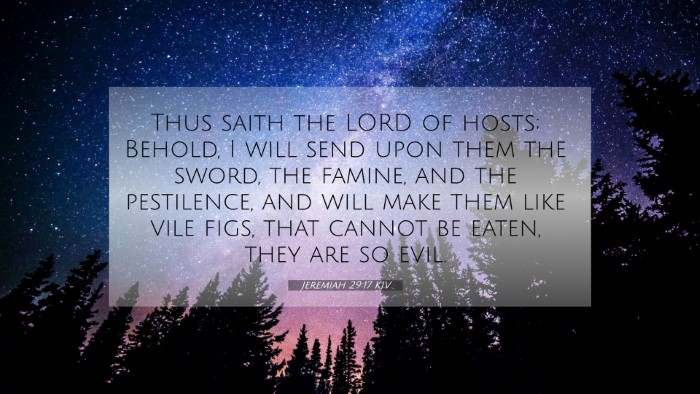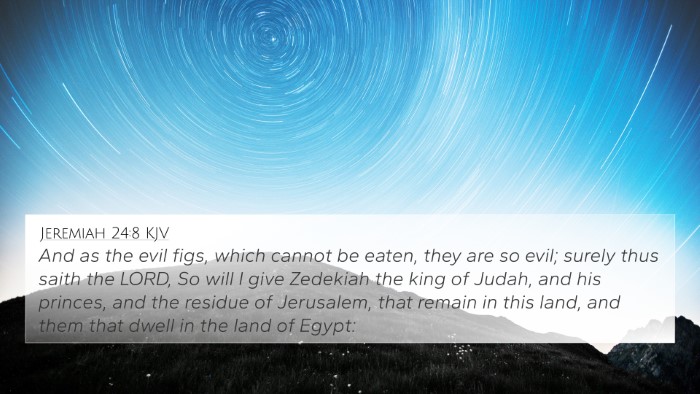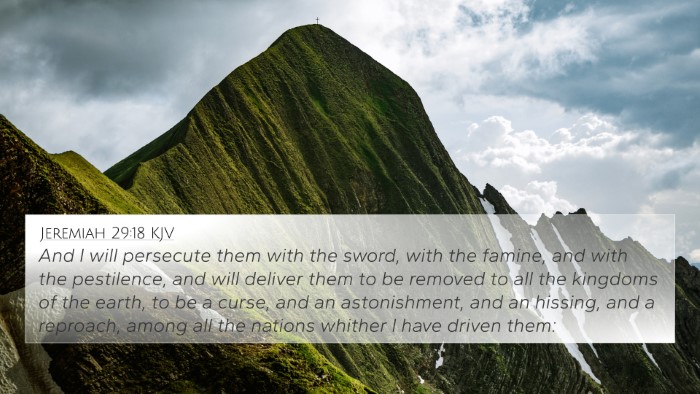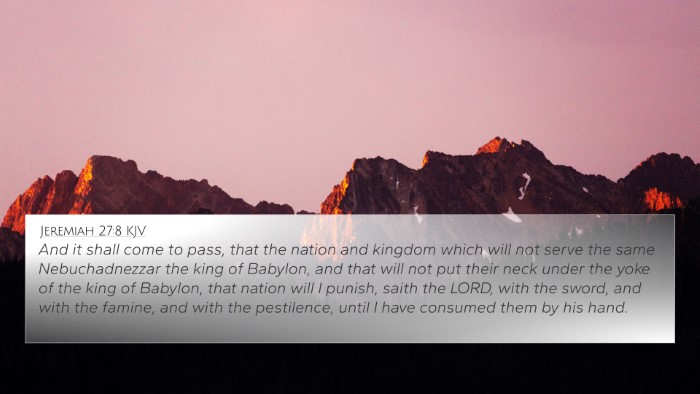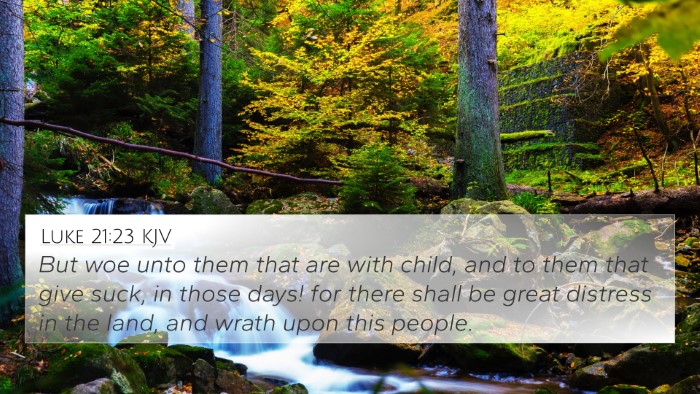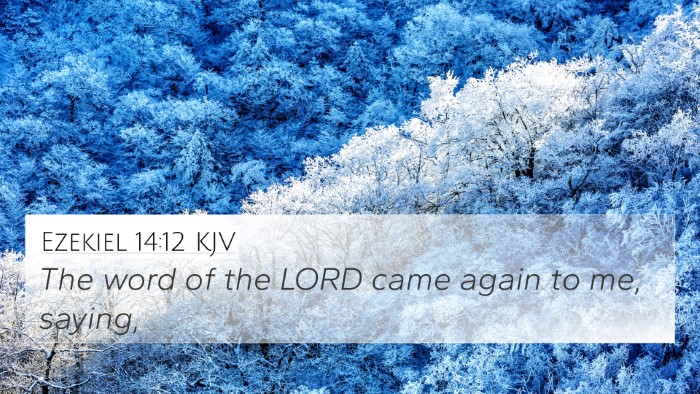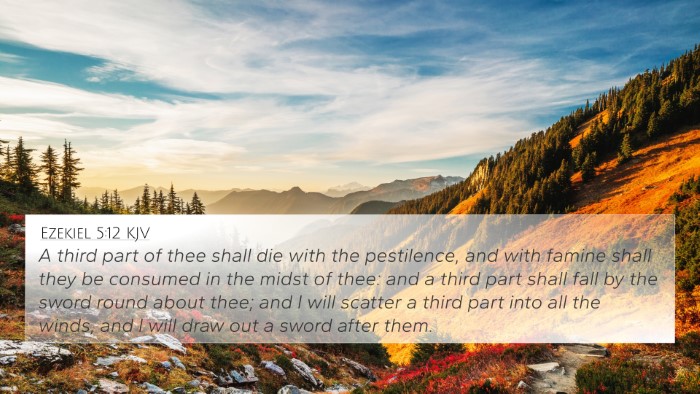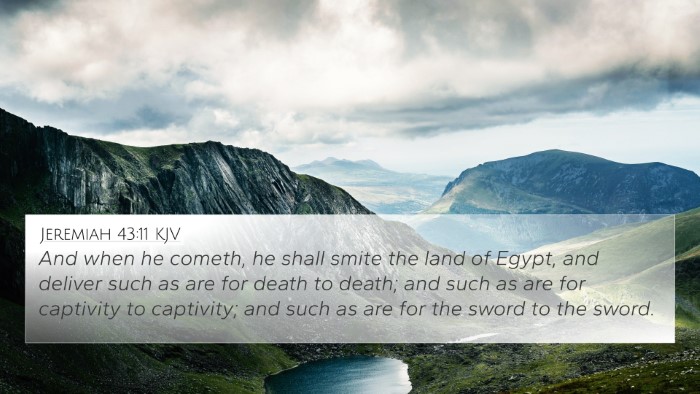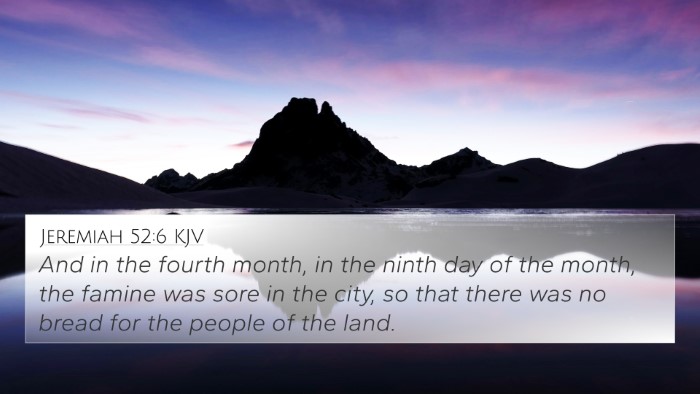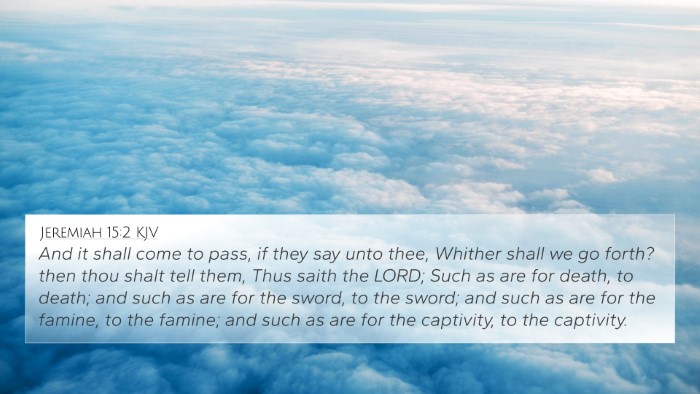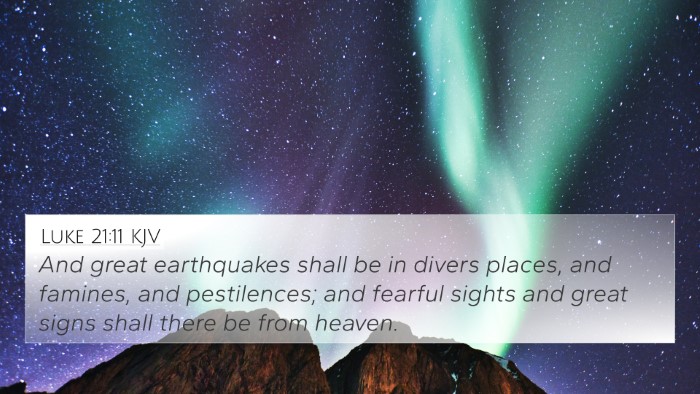Understanding Jeremiah 29:17
Verse: "Thus saith the LORD of hosts; Behold, I will send upon them the sword, the famine, and the pestilence, and will make them like vile figs, that cannot be eaten, they are so evil."
Summary of Interpretations
This verse from Jeremiah speaks to God's severe judgment upon those who have turned away from Him. In understanding this, various public domain commentaries provide insight into the historical context and prophetic significance.
Matthew Henry's Commentary Insights
Matthew Henry emphasizes that the "sword, famine, and pestilence" symbolize the multifaceted judgment of God. It reflects the seriousness of divine rejection. Henry notes that these calamities are not arbitrary but are purposeful actions of God to bring about repentance and awareness of sin.
Albert Barnes' Commentary Insights
Albert Barnes highlights the metaphor of "vile figs" as a representation of people who are irredeemably corrupt. He observes that this serves as a warning from God to maintain faithfulness and to recognize the dire consequences of disobedience. The use of vile figs indicates something that has gone bad, unfit for consumption, representing a state of spiritual decay.
Adam Clarke's Commentary Insights
Adam Clarke elaborates on the nature of judgment, emphasizing that God’s message through Jeremiah reveals an imminent threat to those who do not heed His word. Clarke discusses the cultural implications of fig trees in Israel, linking the destruction of these figs to the destruction of the people’s lives when they turn from God.
Contextual Meaning
The verse is set against the backdrop of the Babylonian exile, where the Israelites faced God's judgment for their apostasy. This judgment is conveyed through vivid imagery that represents both physical and spiritual suffering. Understanding this verse requires acknowledging the consequences of straying from God’s commandments and the call for the remnant to return to righteousness.
Cross-References
Jeremiah 29:17 has several biblical cross-references that enrich its meaning:
- Jeremiah 24:8-10: The comparison between good and bad figs as a metaphor for the chosen and rejected people.
- Lamentations 3:38-40: The understanding that both good and evil come from God, emphasizing accountability.
- Ezekiel 5:17: Further description of calamities that will befall the disobedient.
- Isaiah 10:5: A pronouncement about Assyria being a rod of God's anger and punishment.
- Romans 1:18: The wrath of God revealed against all ungodliness and unrighteousness of men.
- Matthew 24:7: The announcement of future calamities as signs of the end, echoing themes of judgment.
- Revelation 6:8: The four horsemen which illustrate divine judgment in vivid imagery.
Thematic Connections
This verse's themes of judgment, accountability, and the consequences of sin invite a deeper examination of similar verses throughout the Scripture. Here are some thematic Bible verse connections:
- Deuteronomy 28:15-68: The consequences of disobedience to God's laws.
- Proverbs 1:24-27: Wisdom’s call and the consequences of refusing guidance.
- 2 Thessalonians 1:6-9: God's retribution against those who do not obey the gospel.
Practical Application
Understanding Jeremiah 29:17 and its surrounding verses is essential for recognizing the overarching narrative of God’s covenantal relationship with His people. It reminds believers today of the significance of faithfulness, repentance, and the potential consequences of ignoring divine warnings.
How to Use Bible Cross-References
When studying scripture such as Jeremiah 29:17, it's helpful to utilize various tools for Bible cross-referencing. Some methods include:
- Utilizing a bible concordance to find related scriptures.
- Employing a bible cross-reference guide during study to draw connections.
- Engaging in cross-reference Bible study practices to explore themes.
